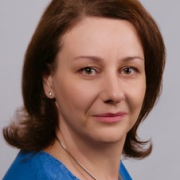
Monika Porwoł
dr.
Assistant Professor / Deputy Director
monika.porwol(at)pwsz.raciborz.edu.pl
monika-porwol(at)wp.pl
The Institute of Modern Language Studies (IMLS)
Instytut Neofilologii – Państwowa Wyższa Szkoła Zawodowa w Raciborzu
The Institute of Modern Language Studies (IMLS) is a dynamically developing unit at the State University of Applied Sciences in Racibórz (Poland), both from the didactic and scientific point of view. In the didactic sphere, the key elements of the activity are based on a practical profile of the conducted studies and an increased role of apprenticeships program, which is undoubtedly connected with obtaining specific qualifications required on the labor market. Scientific and didactic activities take place in the departments of English, German and Czech Philology. The Institute holds substantive supervision over the Foreign Language Center, which provides language courses for students of all faculties and specialties. At the IMLS, there are 30 faculty members: 2 habilitated doctors, 16 doctors and 12 masters. The Institute’s professors conduct intensive scientific activities in various spheres of knowledge (anchored on linguistics and literature; nonetheless, recently developed with a special regard to digital humanities, e-lexicography, linguistic data analysis, etc.). This is evidenced by numerous publications and participation in both domestic and foreign scientific conferences. The Institute publishes the periodical Studia Filologiczne [PL] / Philological Studies [EN] and organizes international scientific conferences with an active participation of both academic teachers and students.
Education in the field of philology is closely related to the university’s mission. Currently, about 500 students undertake language studies. The educational process and research activities at the IMLS are aimed at the following objectives:
- Enabling students to acquire knowledge in the field of philology, including language (communicative) skills, cultural and historical linguistics & literature, allowing to understand the specifics of philology and its links with other disciplines. Practical preparation of students to perform professional tasks in a selected area of philological activity (related to the language, translation, digital technology, media, publishing, tourism, education and culture).
- Developing skills of a philologist using modern means and methods of acquiring, organizing and processing of information, conducting research (especially pertaining to digital humanities).
- Enabling the acquisition of communication skills both with specialists and with people from outside the group of specialists using various channels and techniques.
- Shaping ethical sensitivity, reflexivity and pro-social attitudes with a high morale & a sense of responsibility.






